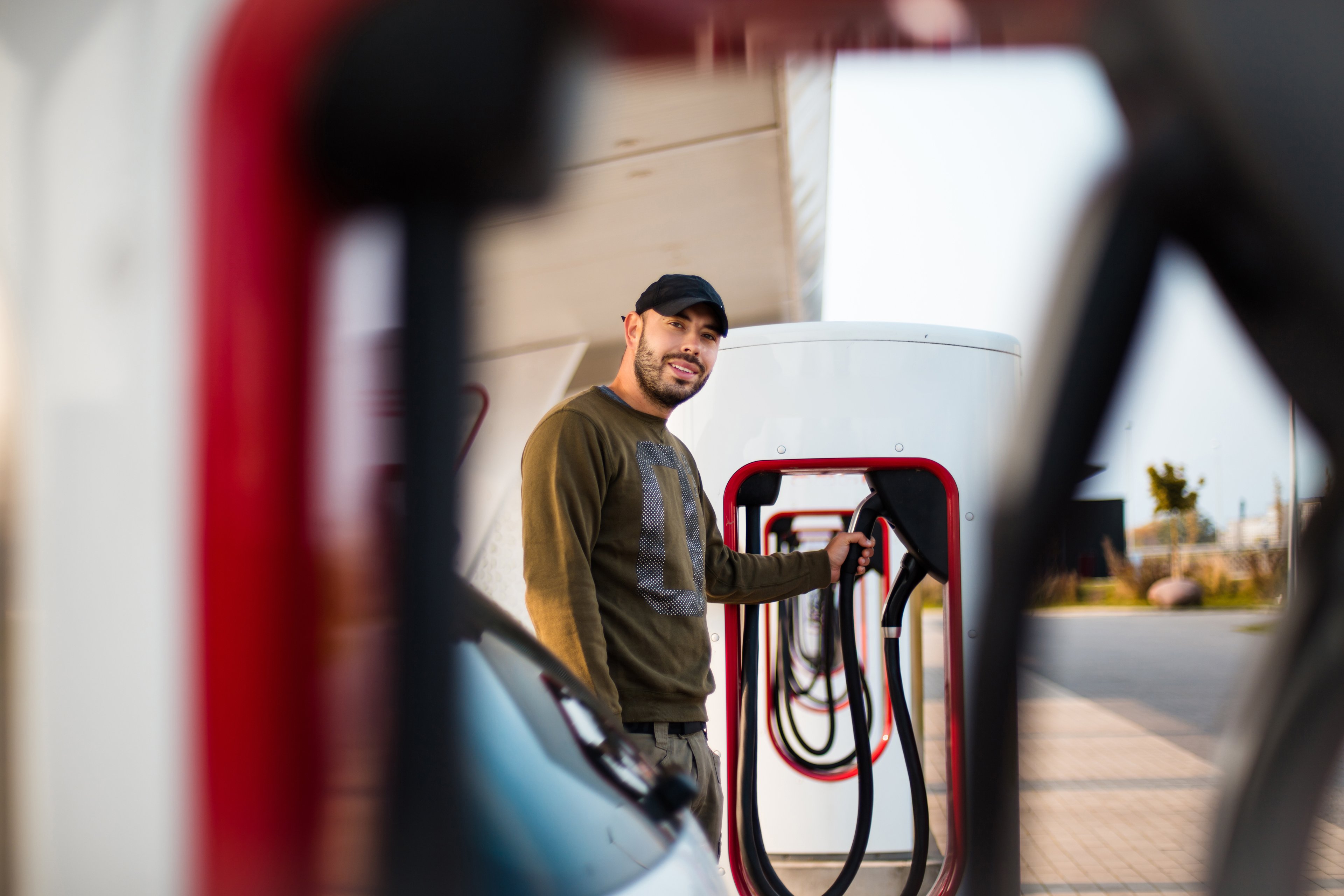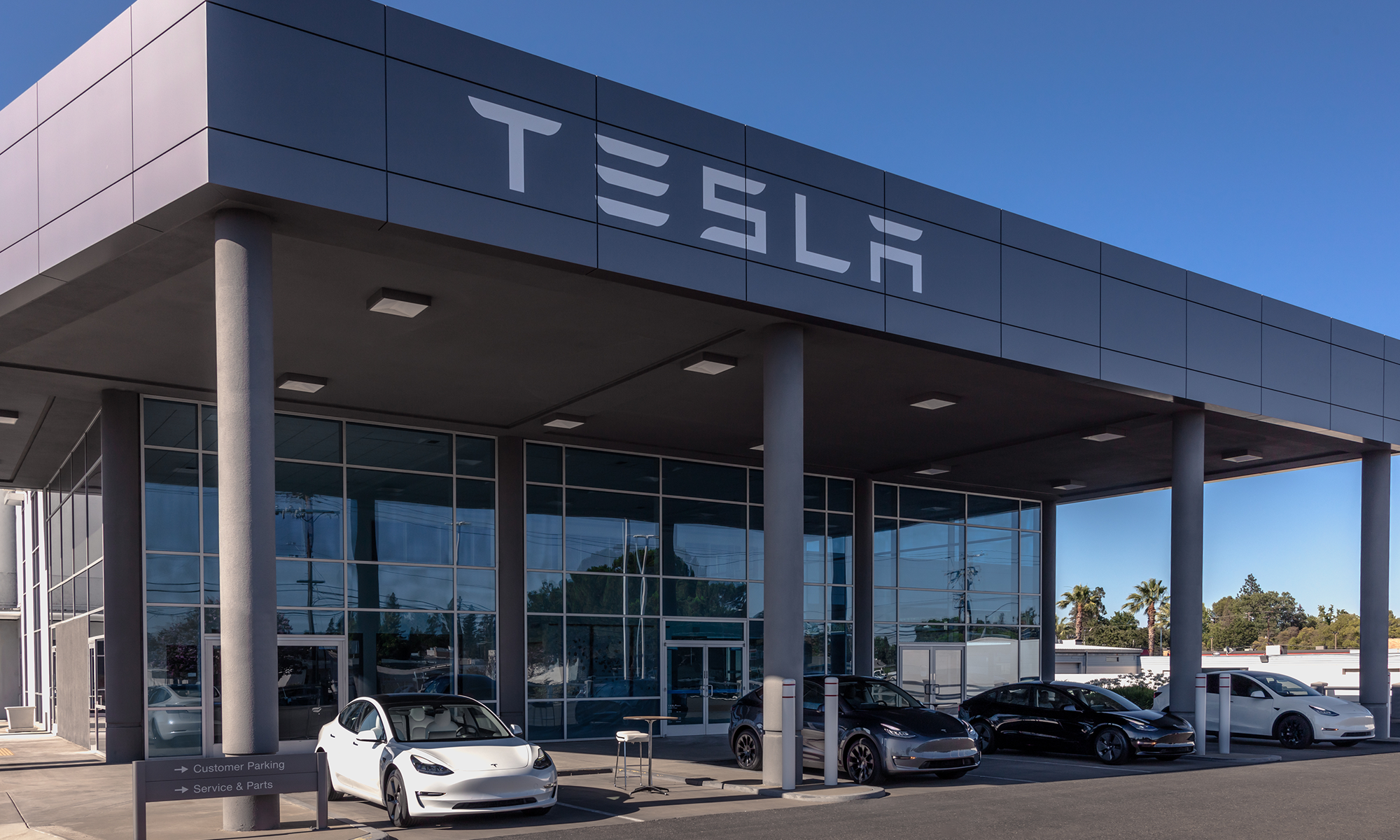A Ph.D. at Stanford wasn't in the cards for Elon Musk. Not because he wasn't admitted, but because he couldn't wait any longer to get started on his professional career. After two days at one of the university's most prestigious programs, he dropped out and embarked on what is likely to become one of the most talked-about careers in history.

Elon Musk. Source:Tesla Motors.
As it turns out, Musk's destiny -- or whatever you want to call it -- was far bigger than attaining a Ph.D. at Stanford. His future involved revolutionizing online payments, building compelling electric cars that would see more demand than supply can handle, starting a space company that would go head-to-head with NASA, and attempting to make solar power more affordable than electricity from the grid.
But let's not get ahead of ourselves. This self-made billionaire's inspiring success story is worth a closer look. A close examination of Musk's road to success not only proves to be entertaining, but it may also shed light on how one of the tenets he holds dear could be fundamental to his ability to generate one big win after another.
What is this fundamental principle that seems so essential to Musk's success? To think for yourself. Or, as Musk refers to it: to reason from "first principles." The tenet underscores nearly everything he has done in his journey to wealth.
A quest for deep understanding
Even as a child, it was clear that Musk wanted to understand things on a deeper level than everyone else.
Elon's mother, Maye Musk, told Esquire in an interview that she and Elon's father, Errol, knew that Elon was "advanced from the very beginning." Because he was continually reading even before he started school, in what seemed like a purposeful pursuit to acquire knowledge, his parents decided to send him to school early.
But that wasn't enough for Musk.
"I read everything I could get my hands on from when I woke up to when I went to sleep," Musk said in reference to his school years as a child in a Bloomberg interview. "At one point I ran out of books and started reading the encyclopedia."
His ambition for learning, combined with his reluctance to serve in the South African Army, eventually compelled him to go to North America, where he said he felt he could be closer to the forefront of groundbreaking technology. With the help of a scholarship, Musk eventually graduated from the University of Pennsylvania's Wharton School of Business with a bachelor's degree in economics. Not yet knowing what was next for him, he completed a second bachelor's degree in physics.
Universities weren't enough
But Stanford couldn't contain him forever. After his two-day venture as a student at Stanford's Ph.D. program for high-energy physics, and at just 24 years old, Musk founded Zip2, a business that would net him $22 million four years later in a sale to Compaq in 1999. Musk would soon turn this money into billions.
Musk multiplied his fortune by co-founding X.com, which eventually became PayPal. eBay paid $1.5 billion for PayPal in 2002, and Musk netted $165 million in stock from the deal.
With this money, Musk helped build the companies we know him by today: electric-car maker, and soon-to-be key player in the energy storage business, Tesla Motors (TSLA 3.94%); solar power company SolarCity (SCTY +0.00%); and space exploration company SpaceX.

Tesla Model S. Source: Tesla Motors.
These three companies, and their rapid successes, have solidified Musk's spot among billionaires. His net worth today stands at an estimated $9 billion, with the majority of his net worth tied up in stock of Tesla, where he is chairman and CEO.
Reasoning from first principles
Interestingly, and backing the idea that "thinking for yourself" is key to Musk's ability to consistently create value, the entrepreneur gives his avid reading more credit for his success than his scholarly education. Despite his time at one of the world's best business schools and at the renowned Stanford University, he still considers himself self-taught.

SpaceX is testing reusable rockets that can actually land after a launch to dramatically reduce the cost of launches. Image source: SpaceX.
Musk's emphasis on self-education likely stems from his enthusiasm for reasoning from "first principles," a notion that is mostly heard in the world of physics. It simply means to fully understand the core aspects of an idea or problem as opposed to only understanding things superficially through existing frameworks.
As Musk has explained on several occasions, he believes that many people simply aren't willing to do the hard work of thinking of ideas and problems from the ground up. Instead, people choose to look at problems by analogy. In other words, people often choose to simply look at a problem or idea in light of current opinions on the subject instead of going to the fundamental basics to build an opinion for themselves.
Reviewing Musk's ventures, it's clear that this tenet is likely at the foundation of his successes. How else could someone, seemingly at will, conjure up new, value-adding solutions in three different major industries: space, autos, and online payments?
It undoubtedly required thinking out of the box. It required reasoning from first principles.
How can we apply this lesson?
We can at least begin by questioning experts and constructing solutions from the ground up. Furthermore, we can start by trying to read quality books and material related to our interests more often.
For me, such a way of thinking, when applied to investing, takes me back to the fundamental factor that really makes a great investment: an enduring business. It reminds me that 99% of the short-term market noise is probably useless for the long-term investor. For me, reasoning from "first principles" in my portfolio means not blindly taking an investment advisor's advice but instead understanding the company myself before I buy shares.






